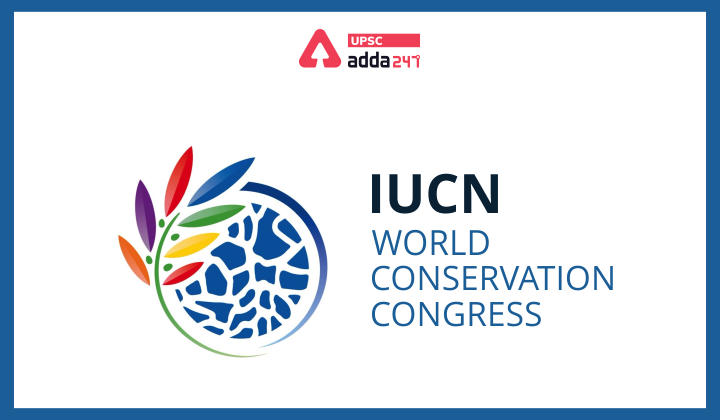Table of Contents
Relevance
- GS 3: Conservation, environmental pollution and degradation
Context
- The International Union for Conservation of Nature (IUCN) and the French government have agreed to hold the IUCN World Conservation Congress 2020 from 3 to 11 September 2021 in Marseille.
About the Congress
- The IUCN World Conservation Congress is where the world comes together to set priorities and drive conservation and sustainable development action.
- IUCN’s 1400+ government, civil society and indigenous peoples’ member organisations vote on major issues, action which guides humanity’s relationship with our planet for the decades ahead.
- IUCN’s unique and inclusive membership gives the Congress a powerful mandate as it is not solely government or non-government, but both together.
- IUCN World Conservation Congress theme include Landscapes; Freshwater; Oceans; Climate change; Rights and governance; Economic and financial systems and Knowledge, innovation and technology.
- IUCN Members will elect a new Council for 2020-24 i.e., for World Conservation Congress 2024.
Behler Turtle Conservation Award
IUCN Red List
- The IUCN Red List is a critical indicator of the health of the world’s biodiversity.
- In the recently released data given by IUCN in the World Conservation Congress, it was flagged that around 900 species have officially become extinct.
- Moreover, 30% of the total species that it assessed face the threat of extinction.
- Around 80 species are extinct in the wild, and more than 8,400 are critically endangered.
- It also showed that 37 per cent of the world’s shark and ray species were threatened with extinction.
Positive news from fisheries
- Four of the seven most commercially fished tuna species have shown signs of recovery. Those are:
- The Atlantic bluefin tuna (Thunnus thynnus)—moved from endangered to least concern.
- The Southern bluefin tuna (Thunnus maccoyii)—moved from critically endangered to endangered.
- The albacore (Thunnus alalunga)—moved from near threatened to least concern.
- The yellowfin tunas (Thunnus albacares)—moved from near threatened to least concern.
Komoda Dragon
- The world’s largest living lizard, the Komodo dragon (Varanus komodoensis), has been moved from vulnerable to endangered.
- It is endemic to Indonesia and occurs only in the World Heritage-listed Komodo National Park and neighbouring Flores.
- Rising global temperature and subsequent sea levels are expected to reduce the Komodo dragon’s suitable habitat by 30% in the next 45 years.
- Also, Komodo dragons living outside protected areas in Flores are threatened by significant habitat loss due to ongoing human activities.




 TSPSC Group 1 Question Paper 2024, Downl...
TSPSC Group 1 Question Paper 2024, Downl...
 TSPSC Group 1 Answer key 2024 Out, Downl...
TSPSC Group 1 Answer key 2024 Out, Downl...
 UPSC Prelims 2024 Question Paper, Downlo...
UPSC Prelims 2024 Question Paper, Downlo...
